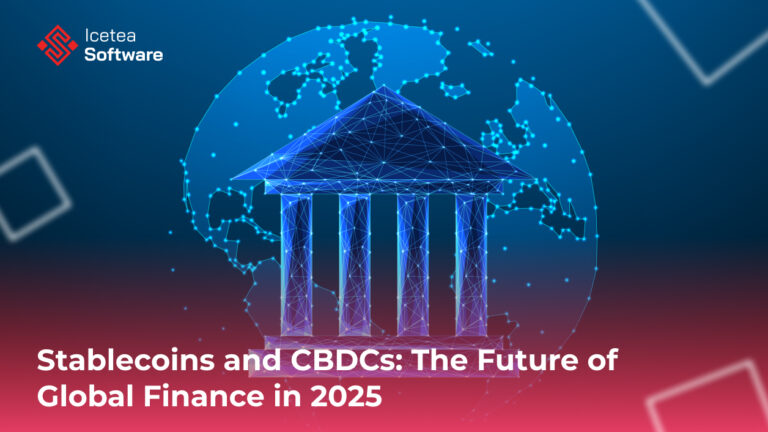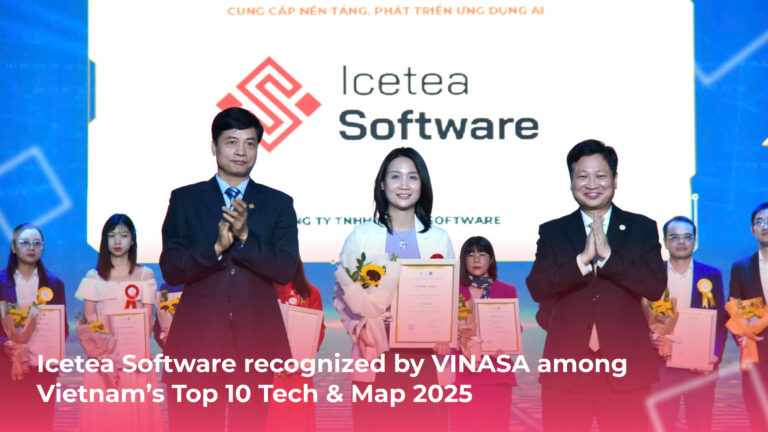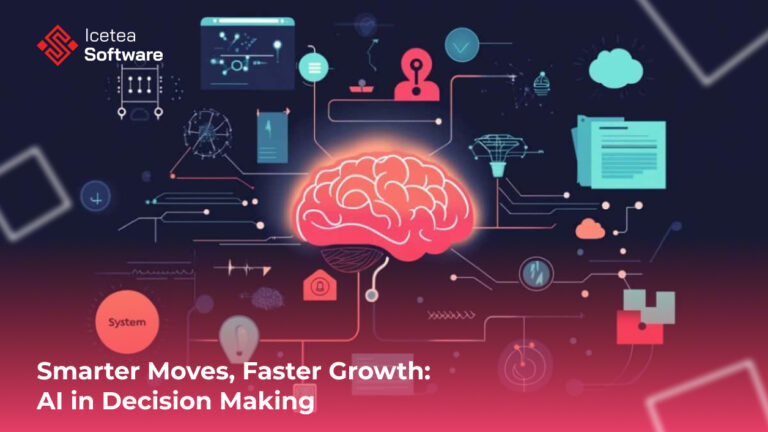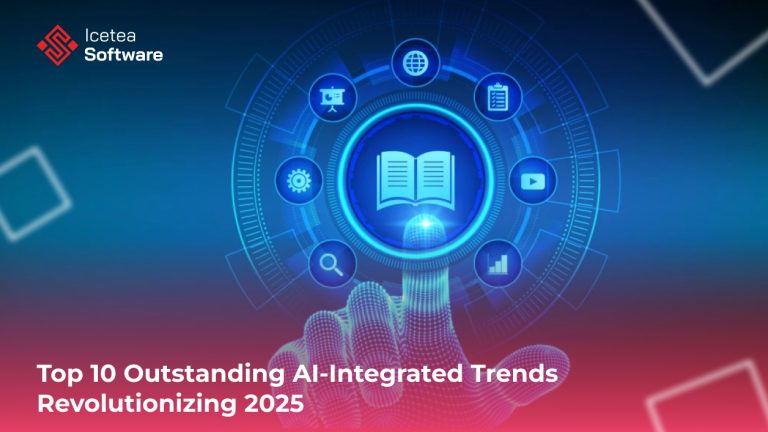ChatGPT, Copilot, and Beyond: 4 Bold Ways AI is Redefining Software Development
In today’s fast-moving tech landscape, intelligent systems are reshaping industries—and software development is no exception. Among the most disruptive innovations are smart coding assistants such as ChatGPT and GitHub Copilot, which are transforming how programmers write, review, and deploy code. These advanced companions go beyond simple automation; they act as partners in problem-solving, helping teams…
In today’s fast-moving tech landscape, intelligent systems are reshaping industries—and software development is no exception. Among the most disruptive innovations are smart coding assistants such as ChatGPT and GitHub Copilot, which are transforming how programmers write, review, and deploy code. These advanced companions go beyond simple automation; they act as partners in problem-solving, helping teams work faster, smarter, and more creatively.
This blog explores the influence of these next-generation assistants on the programming profession, weighing the benefits, challenges, and the road ahead in a machine-augmented future.
What Are AI Code Assistants?
Intelligent coding assistants are advanced tools powered by machine learning and modern automation. They are designed to support developers by generating code, suggesting improvements, fixing errors, and even clarifying complex functions.
ChatGPT: A conversational system capable of producing human-like responses, explaining programming concepts, and writing entire code snippets from natural language prompts.
GitHub Copilot: A specialized coding companion built on OpenAI’s Codex model, seamlessly integrated into IDEs like Visual Studio Code to provide real-time suggestions.
Together, these innovations represent a major leap in how technology is applied to software engineering.
The Benefits
1. Boosting Productivity
Smart coding assistants save countless hours by auto-generating boilerplate code, suggesting functions, or offering quick fixes for errors. This frees software professionals to focus on higher-level design and architecture instead of repetitive tasks.
2. Learning and Mentorship
For junior programmers, intelligent helpers act almost like mentors. They deliver instant explanations of algorithms, frameworks, and syntax, accelerating learning without relying solely on textbooks or online forums.
3. Error Detection and Debugging
Debugging is often one of the most time-consuming stages of development. Automated assistants help spot logical inconsistencies, propose corrections, and minimize the likelihood of runtime errors.
4. Innovation Through Collaboration
By taking over routine tasks, machine-driven tools give developers more room to innovate, solve complex problems, and apply technology creatively. This makes the profession more dynamic and fulfilling.
The Challenges and Limitations
While the integration of Artificial Intelligence (AI) into modern technology has opened up exciting opportunities, AI code assistants such as ChatGPT and GitHub Copilot are not without challenges. For all their potential, there are important limitations that developers must carefully consider.
1. Accuracy and Reliability Issues
Machine-generated code, while often useful, is not always accurate. In some cases, the output may be inefficient, outdated, or even insecure if applied without review. This introduces risks for projects requiring high performance, scalability, and adherence to modern security standards. Human oversight remains vital—although smart assistants can produce solutions quickly, only skilled programmers can guarantee that implementations align with best practices and project requirements.
2. Risk of Over-Reliance
Another major concern is the tendency for some programmers to become overly dependent on automated helpers. When developers rely too heavily on these systems to write or debug code, they risk losing touch with core problem-solving skills and foundational programming knowledge. Such dependency could result in a generation of professionals who understand less about underlying logic and more about prompting machines—raising questions about the long-term balance between human expertise and automated output.
3. Intellectual Property Concerns
Since tools like GitHub Copilot are trained on vast amounts of open-source and publicly available code, unresolved legal and ethical debates continue around copyright, licensing, and fair use. Who owns machine-generated output? Can organizations safely adopt automatically written code without facing legal disputes? These uncertainties highlight the complexity of introducing advanced assistants into real-world environments where compliance and intellectual property rights are critical.
4. Ethical and Security Risks
Like any powerful technology, intelligent coding systems carry potential risks when misused. Malicious actors could exploit them to produce harmful code, malware, or attack scripts. Moreover, because these tools lack a full understanding of ethical and contextual implications, they may inadvertently introduce vulnerabilities or biases into projects. This reinforces the need for practitioners to act responsibly, ensuring not only the quality of the code but also its broader societal and security impact.
How AI Is Changing the Role of Developers
The profession of software development is evolving. Instead of writing every line of code manually, programmers are now guiding intelligent assistants to generate accurate and efficient solutions.
This shift emphasizes:
Problem-Solving over Syntax: Greater focus on logic and architecture rather than memorizing commands.
Collaboration with Smart Tools: Just as developers once adopted IDEs, version control, and CI/CD pipelines, automated coding companions are becoming another indispensable layer of technology.
Continuous Learning: As these systems advance, practitioners must also upgrade their skills to take full advantage of emerging tools.
The Future of Programming with AI
As technology advances, the future of programming will be shaped heavily by intelligent coding assistants. Tools such as ChatGPT and GitHub Copilot are only the beginning; the next generation of systems will bring even more powerful capabilities to software teams worldwide.
1. Smarter Assistants
Upcoming solutions will not only suggest lines of code but also understand full project context—covering system architecture, performance goals, and business requirements. Rather than providing isolated snippets, these smart companions will deliver end-to-end solutions aligned with project objectives. This allows professionals to rely on automated helpers for complex problem-solving, freeing time for innovation and high-level decision-making.
2. Cross-Domain Expertise
As machine-driven technology progresses, coding assistants will specialize in areas such as blockchain, cybersecurity, machine learning, and data science. They will offer precise, domain-specific code patterns and frameworks—helping teams build secure smart contracts, design advanced data models, or implement encryption techniques with ease. By embedding intelligent tools into niche fields, programming becomes more efficient and accessible for both experts and newcomers.
3. Enhanced Collaboration
The future of software creation lies in hybrid workflows where human creativity and machine precision complement one another. Smart assistants will enable real-time collaboration, allowing teams to interact with automated systems during coding sessions. This integration will streamline communication, speed up delivery, and foster an environment where humans drive strategic direction while machines handle execution—making these tools a trusted member of every development team.
4. Ethical Frameworks and Responsible Use
With greater reliance on advanced systems comes greater responsibility. As coding assistants grow more capable, there will be a pressing need for ethical frameworks that ensure fairness, accountability, and transparency in their design and deployment. Issues such as bias in training data, intellectual property rights, and secure coding practices must be addressed. For practitioners, this means not only mastering how to use these tools but also understanding their broader ethical implications. A responsible approach will help build trust in the integration of intelligent technology into the software industry.
Final Thoughts
Intelligent coding companions such as ChatGPT and GitHub Copilot are not replacing programmers—they are reshaping the very craft of software creation. By handling repetitive tasks, providing smart suggestions, and acting as constant collaborators, these tools allow professionals to focus on creativity, innovation, and complex problem-solving.
The future of software engineering lies in a symbiotic relationship between human ingenuity and machine intelligence. As technology continues to evolve, those who adapt to working alongside these advanced systems will be best positioned to succeed in the next era of development.
About Icetea Software
Icetea Software is a Vietnam-based technology firm specializing in scalable, secure, and future-ready solutions in Web3, AI, and digital transformation. With operations in Vietnam and Korea, the company supports global enterprises and startups through end-to-end technology services, infrastructure development, and innovation consulting.
𝗜𝗰𝗲𝘁𝗲𝗮 𝗦𝗼𝗳𝘁𝘄𝗮𝗿𝗲 – Revolutionize Your Tech Journey!
Website: iceteasoftware.com
LinkedIn: linkedin.com/company/iceteasoftware
Facebook: Icetea Software
X: x.com/Icetea_software





